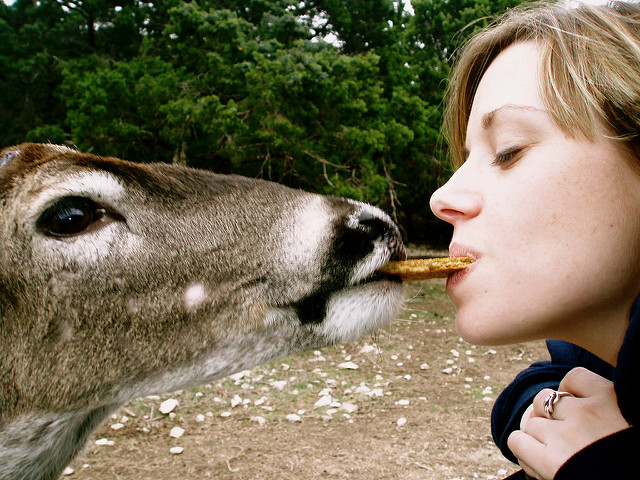I often come across a piece of furniture, fabric, or family heirloom that unleashes a stream of emotions or nudges a memory that prompts me to delve deeper into my psyche.
As a product designer and decor blogger, this synesthetic nature of paraphernalia has intrigued me for some time now.
My preoccupation is not limited to material possessions alone, but spills over to my relationship with food as well. So, I decided to explore the sensorial experiences and mechanisms that influence food memory.
Childhood, Context, and Culture
One of my earliest memories of childhood is of eating avocados blended with sugar and milk on a particularly rainy day at my maternal grandmother’s place.
I can still picture my granny’s tiny, wrinkled hands slicing through the fruit, scooping out the green, fibrous flesh, and beating it to a pulp with sugar and milk. I can almost hear the rain beating against the windows and see the dark storm clouds through the window next to the bed on which I sat, devouring the fruit. To this day, it’s the only kind of avocado preparation I prefer and no guacamole or salad can compete with the memory of the taste, texture, and the love with which my granny made it for me.
Many of us have vivid memories of food that transport us back to our childhoods because food engages all our senses, consequently making the memories linked to it more powerful than other memories.
Most cultures indulge in feasts during festivals and other celebratory occasions. Food, family, and friends play an important role in fostering memory at the cultural level.
It’s not just the taste, texture, and smell of the food that is evocative, but the situation in which we consumed it—the person who prepared it, the place, the people we were with, and the occasion collectively feed our memory of the food. This inexorably social and symbolic nature of food is what adds to the nostalgia.
Current Relationships and Comfort Food
As kids, my sister and I would organize moonlit dinners on our porch on full moon nights. On such nights, my mum always served roast chicken. My sister and I would take great care to arrange the cutlery, match the linen with the plates, pick flowers from our garden, and go to great lengths to make it as special as we possibly could with the limited resources at our disposal. Occasionally, we would even put on a talent show.
Now, years later after having tasted authentic roast chicken, I sometimes crave this Indian version of a roast chicken. My mum doesn’t make it any more. I doubt if she even remembers the recipe—but whenever I bite into a piece of roast chicken, all these memories come flooding back.
The sight of beautifully plated food nourishes my soul, and staring at food porn cheers me up. Cooking, eating, and feeding friends and family, to me, are as stress-busting and gratifying as painting and creating art.
I often claim that I could never be with a man who is indifferent to food.
Psychologists say that our food memories play an important role in our current relationships and the food-related rituals we build around them.
For instance, if we have pleasant memories of meal times with our family from childhood, we would in all probability want to recreate them with our partner. On the other hand, studies show that if we grew up with unhealthy eating habits, chances are that as adults, we will be preoccupied with food and overly concerned about feeding our own children healthier meals.
The stories we tell about ourselves in relation to food can also reveal a great deal about our sense of security in relationships, our uncertainties with regard to our partner, and our issues with intimacy.
Comfort foods can be particularly revelatory. We have a tendency to binge on them when we are depressed or sick, because it prompts memories of the times it made us feel safe, loved, and cared for.
Travel
Travel, for me, has always been synonymous with food.
On a holiday, if the meals don’t live up to my expectations, chances are that I will return feeling a tad bit disappointed in spite of the other enriching experiences that the destination provided. I often recall a visit to a historical site or a museum through my memory of a meal I had around the place. The most precious souvenirs I own are my food memories. So, I obsessively document every remarkable meal I have.
Food Choices and Feelings
Our food choices are often dictated by our memories. One of my favorite food-related memories from my adult life has to do with my college friend, Sid.
A dyed-in-the-wool foodie himself, one of the many things he insisted on was a dash of instant coffee with his banana milkshake, because that’s how his mother made it while he was growing up. On one occasion, he asked the waitress at a café we frequented to add instant coffee to his banana milkshake and proceeded to expound the virtues of this concoction and why he couldn’t have it any other way.
He passed away less than a year after this incident. In the years that I knew him, we spent many fun-filled, crazy times together. But this is the one memory that stuck. Banana milkshakes remind me of Sid every single time I have one—and yes, I never forget to add a dash of instant coffee to mine.
Have you ever wondered why certain smells trigger deep-rooted feelings and emotions with regard to a person or place?
This is because the hippocampus or the part of the brain that deals with memory formation has connections to parts of the brain that trigger emotion, as well as the parts that influence our sense of smell. But what I find most interesting is that the hippocampus has links to the digestive system and the many hormones that regulate digestion, appetite, and eating behavior.
Hence, our food memories hold a plethora of information, provide insight into our eating habits, and serve as intriguing windows into our past.
So, the next time you drown yourself in the comfort of a bowl of piping hot chicken soup or dig into a dish of warm apple pie, do take the time to acknowledge the stories, the people, and the places that dictated your choice of food, and pause to savor the memories that led you to them.
And while you’re at it, do spare a few seconds to share them with me here. I would love to read about them.
~
~
Author: Sushma Madappa
Image: Charles Williams/Flickr; Pilar Diethelm/Flickr
Editor: Catherine Monkman
Copy Editor: Yoli Ramazzina
Social Editor: Nicole Cameron


 Share on bsky
Share on bsky





Read 0 comments and reply